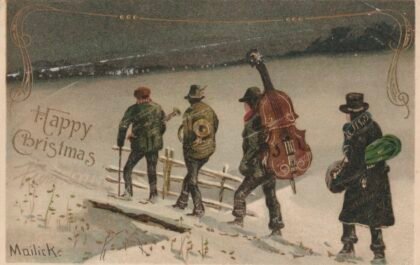
Stephen King may be the most prolific writer of our day. He has written dozens of full-length stand-alone novels beginning with Carrie in 1974, a lifetime of short story collections—many published before Carrie—five unique series collections, a handful of graphic novels, and a number of other contributions including telling us how and why he does it.*
As someone who fancies himself an avid reader, I must now confess that I have only recently taken account of the entirety of King’s massive body of literary gems. It took me a while to get here because, frankly, I believe I very early on put King in a “box” marked “horror, gore, and the supernatural.”
As a lover of history, my reading selections include a great deal of non-fiction; while the fiction I read is often of the historical variety where made-up characters interact through real events of the past. My lightest reading is crime and legal thriller fiction and spy stories, which also have a thread that connects them to the truth of things.
Looking back, I would say my stereotyping of King came from viewing movies based upon his books including Carrie (1974) and Christine (1983). The movies were good creepy entertainment but the supernatural elements—telekinesis in one and a haunted and vindictive automobile in the other—had me just waiting around for the next movie instead of exploring the author who had dreamed this stuff up.
Capturing my attention as the first step into the broader world of Stephen King is 11/22/63 (2011), which I first listened to on audiobook. I don’t often go through books more than onc,e but I decided to compare this delightful experience with the actual reading of the book. The only notable difference for me was reading many of the passages with the audiobook narrator in my head.
11/22/63 intrigued me because it posed a “what if?” question. In this case King asks, “What if the assassination of John F. Kennedy could have been prevented?” Not only does King examine how the world might have been different if Kennedy had not been assassinated, he explores how the tiniest changes to the previous timeline of our lives can have monumental unforeseen consequences.
I was reminded of many Star Trek TV and film episodes which explore the same dynamic; most notably, “TOS 28 The City on the Edge of Forever,” where Captain Kirk and others travel back to New York City during the Great Depression of the 1930s. This is great, yet absolutely heart wrenching television.
King’s time travel tale piqued my interest because, if well done, a book like 11/22/63 raises the type of questions that one can begin to answer or speculate about only if the underlying history is well-understood. This seems a worthwhile exercise even under the premise of time travel.
What I also realized is that King’s characters in 11/22/63 were challenged with all sorts of interesting questions and dilemmas; the prime one here, and most entertaining to ponder is “What will saving JFK do to the present?” Sure, if anyone could have prevented his assassination at the time, they would do it, but what happens when fifty years of history has already unfolded with a very dead Kennedy in November of 1963?
Next, I read King’s latest book at the time, Billy Summers (2021). This was just flat out great storytelling without the supernatural elements and gore that I had so long ago associated with the “horror writer” Stephen King.
Since then, I have read several other King novels and enjoyed listening to his short stories while meandering around the Southwest in my camper. For example, see Books & Such: Tucking Myself in with Stephen King found here: https://topanganewtimes.com/2022/10/21/tucking-myself-in-with-stephen-king/
King’s most recent novel as of this writing is Holly (2023). This one has a bit of the surreal but the creepy overtones are played off as the fanatical ravings of an old couple desperately hanging on to their lives, rather than some supernatural shenanigans.
Many of King’s tales include writer characters that sometimes look a lot like King himself. In the case of Lisey’s Story (2006), the writer in question is dead but still speaks to and guides his troubled wife/widow. King’s Misery (1987) follows a writer who is abducted by a rabid and sadistic fan. I know this only because Misery—and many other King works—were put to film. While watching Misery long ago, I don’t believe I noticed it as a Stephen King story. If I had, I might have discovered the broader Stephen King earlier. That’s the danger with stereotypes. We put other people into boxes and the result is that we actually put ourselves into a narrow-box of our own.
More recently I read King’s Revival (2014) and From a Buick 8 (2002). Revival follows a minister whose fascination with the secret powers of electricity leads him down a dark path. All the while, a little boy grows up under his long shadow. In From a Buick 8, my King stereotype comes to life, and what once pushed me away now draws me in.
Other themes embraced by Stephen King include the apocalypse, aliens, pathogens, demonic possession, the frailty of religious comfort, substance abuse and what that can do to the human spirit and imagination, clairvoyance, soul-selling greed, lost on the highway, carnivals and amusement parks, immortality, and, of course, gruesome gore that sometimes drips off the page and into your lap (stereotypes come from somewhere, right?).
What I missed about Stephen King—and am now exploring with great enthusiasm —stereotype be damned—is the manner in which his writing explores the boundaries of the human condition and our ability to understand the world we live in and, most strikingly for King, the farthest limits of our imagination.
Thankfully, I have only begun to explore the totality of Stephen King.
*Here is another fan’s extensive summary of much of Stephen King’s work.





